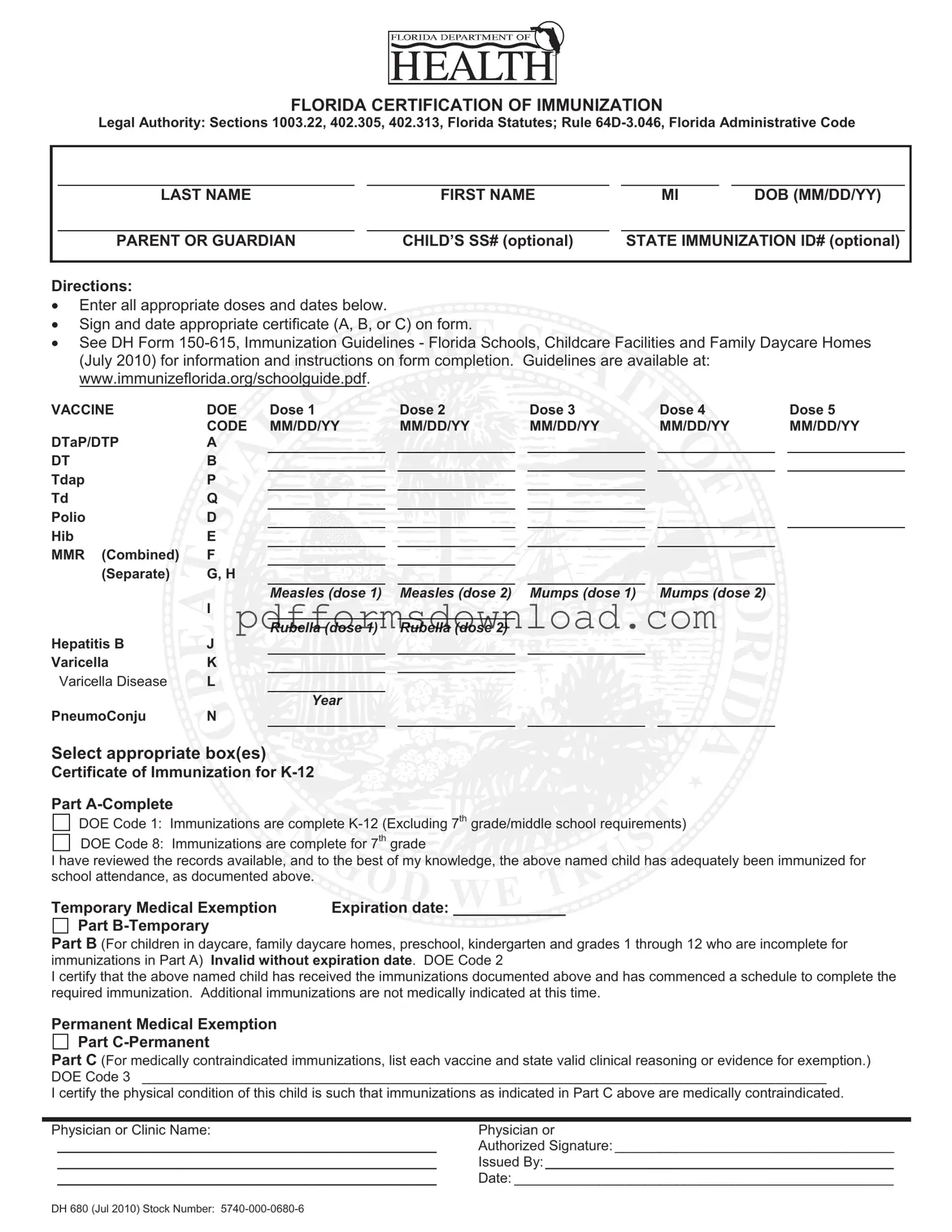What is the purpose of the 680 form?
The 680 form, also known as the Florida Certification of Immunization, is used to document a child's immunization history. It is required for school attendance in Florida, ensuring that children are vaccinated according to state guidelines. This form helps schools verify that students have received the necessary immunizations to protect their health and the health of others.
Who needs to fill out the 680 form?
The form must be completed for children entering K-12 schools, daycare facilities, family daycare homes, preschools, and kindergartens in Florida. Parents or guardians are responsible for filling out the form with the child's immunization details.
What information is required on the 680 form?
Key information includes the child's name, date of birth, parent or guardian's name, and immunization details. The form requires specific vaccine doses and dates, as well as the child's Social Security number and state immunization ID number, although these last two are optional.
What are the different parts of the 680 form?
The form is divided into three parts. Part A certifies that a child has completed all required immunizations for K-12 or 7th grade. Part B is for children who are in the process of completing their immunizations. Part C is for those with permanent medical exemptions due to contraindications for certain vaccines.
What should I do if my child has a medical exemption?
If your child has a medical exemption, you will need to complete Part C of the 680 form. You must list each vaccine that is contraindicated and provide valid clinical reasoning or evidence for the exemption. A physician or authorized clinic must sign this part of the form.
How do I obtain the 680 form?
The 680 form can be obtained from healthcare providers, schools, or directly from the Florida Department of Health website. Additionally, it may be available at immunization clinics and pediatric offices across the state.
Is there a deadline for submitting the 680 form?
Yes, the 680 form should be submitted before the start of the school year or upon enrollment in daycare or preschool. It is important to ensure that the form is completed and submitted on time to avoid any issues with school attendance.
Where can I find more information about immunization requirements?
Additional information about immunization requirements and guidelines can be found on the Florida Department of Health's website. The specific guidelines for schools, childcare facilities, and family daycare homes are available at www.immunizeflorida.org/schoolguide.pdf.

